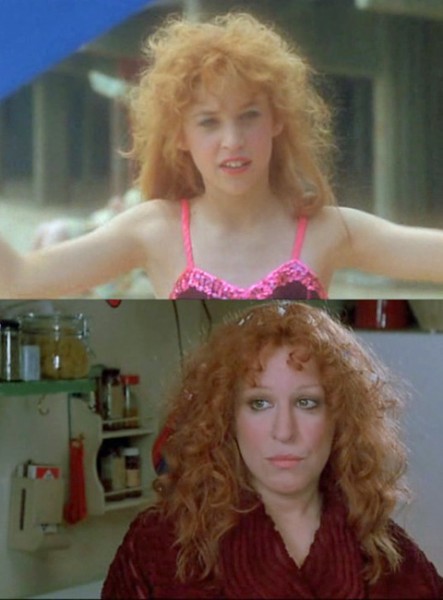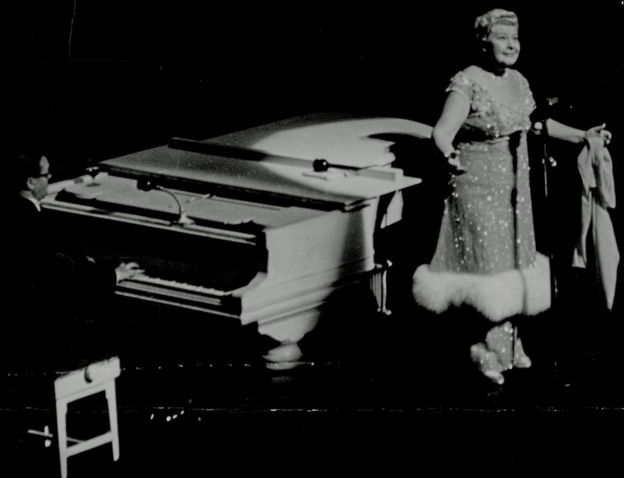New York Post
Chemo sobby
By”‰REED TUCKER
Last Updated: 5:32 AM, October 2, 2011
Posted: 9:56 PM, October 1, 2011
In 2009, Kim Bard, a psychologist at the Centre of the Study of Emotion at England’s University of Portsmouth, identified the 10 movies that are most likely to make audiences cry. The top tearjerker on the list: Bette Midler’s “Beaches.” No. 2, “The Color Purple.”
Other movies that made the tissue grade were 1983’s “Terms of Endearment,” the Renée Zellweger cancer drama “One True Thing,” the Richard Gere trashy-romance-novel-come-to-life “Nights in Rodanthe” and “P.S. I Love You,” a film about a dead husband leaving his wife letters. Or something.
Notice anything that all these films have in common? Yep. Very few self-respecting men have seen them, and even fewer would probably cop to being emotionally manipulated by any of them. Certainly not enough to shed actual salty tears.
Which is not to say that men don’t cry. We cry often enough – at break-ups, tragedies and, worst of all, when the Knicks hired Isiah Thomas. It’s just that the truth is, very few films considered tearjerkers are aimed at guys.
Now along comes this weekend’s “50/50,” a movie about a young professional (Joseph Gordon-Levitt) who gets cancer, and it seems like the filmmakers might have just released into the wild that rarest of Hollywood beasts, a tearjerker that doesn’t feel like a tearjerker. And one that’s aimed at men.
In her research into weepy films, Bard identified four triggers that get the tear ducts pumping: how often the characters cry on-screen (at least 15 times is ideal), the overall sadness of the movie, the underlying positive message of the film and a minimum of truly happy moments experienced by the characters.
Using this formula, you are likely to arrive at a sappy chick flick like “Beaches.” But “50/50″ is no chick flick. Instead of deploying extended scenes of its characters weeping or other standard heart-tuggers, it tells a reasonably matter-of-fact story, low on melodrama and high on comedy, about a young man’s potentially terminal diagnosis and how those around him struggle to deal with it, including his jokey best buddy (Seth Rogen), his self-absorbed girlfriend (Bryce Dallas Howard) and his doting mother (Anjelica Huston).
It’s alternately sad, funny and shocking. Kind of like real life. And the movie’s realism is easily explained. The writer, Will Reiser, is a cancer survivor who had a tumor removed from his spine a few years ago. He incorporated much of his own experience into the script.
“The whole experience was so bizarre,” Reiser says. “Humor was the thing that saved me through it all. I wanted to share that. I think it’s OK for us to laugh at illness and how absurd it is, and it’s also OK to cry.”
But is it really OK to cry?
“If I had a dollar for every guy who took me aside and said, ”˜I’d never admit this to anyone except you, but every time I see your movie it makes me weep,’ I’d be a very rich man,” says David Anspaugh, director of what is considered by many to be among the greatest male-centric weepies of all time, the football underdog flick “Rudy.”
Movie studios also seem to be wary of tears. The marketing for “50/50″ has positioned it like a raunchy Judd Apatow comedy, focusing on Seth Rogen’s wisecracks while shying away from the heavier moments. The sleight of hand makes sense considering Hollywood’s traditional target audience is young males 15-25, a group not known for being in touch with their feelings.
But selling a tearjerker to men may require more than just a marketing fake-out. It often requires a different kind of movie than the weepies traditionally aimed at women.
“You’d have to be really brave to do ”˜Beaches’ for men. People are too hip and cynical, so you have to disguise it in a way,” says Tim McCanlies, writer of “The Iron Giant” and writer-director of “Secondhand Lions,” two movies often cited for coaxing an awkward cry from men. One successful way to disguise a movie’s gooey emotional center (besides using comedy like “50/50″) is to make the story about children, a tactic used effectively in “Stand By Me” and others.
“For some reason, both ”˜Secondhand Lions’ and ”˜The Iron Giant’ worked because they had younger protagonists. In a way, you couldn’t do those movies if they were about adults,” McCanlies says. “When adults see movies with young people in them – especially period movies – we can throw off this cynical adult armor and remember when we were innocent and everything was new and fresh.”
Or you could just make a movie about sports. Among the most famous male tearjerkers, a disproportionate number involve athletes, such as “Field of Dreams”, “Brian’s Song” and “The Champ”, a movie so sad it’s actually used by scientists in experiments to make people cry.
Anspaugh doesn’t think men are such cavemen that they only feel comfortable crying when sports are involved.
“I like to think that we’ve evolved a little more,” he says. “I know from my own experience with male friends, I think they’re more comfortable showing their emotions than they were 20 years ago.”
And in the end, it’s not really the game bits that get viewers emotional. It’s the more human elements of a story. Anspaugh, who made another one of those classic it’s-about-sports-but-not-really-about-sports movies – “Hoosiers” – learned that firsthand.
“ ”˜Hoosiers’ had been out about a month and I got a phone call anonymously out of the blue,” Anspaugh recalls. “A guy said, ”˜I’m not gonna tell you my name. I’m not gonna tell you how I got your number. I just want to tell you that I took my daughters to see ”˜Hoosiers’ last week. I was born in New York, and I practice law in California. I’ve never been to the Midwest, but I cried throughout the movie. The story was great, but that’s not why I wept. I wept because I’d never know what life was like in that part of the country and more so because my daughters will never know. And I wept for them.”
Bummer. Anyone up for something starring Vin Diesel?







